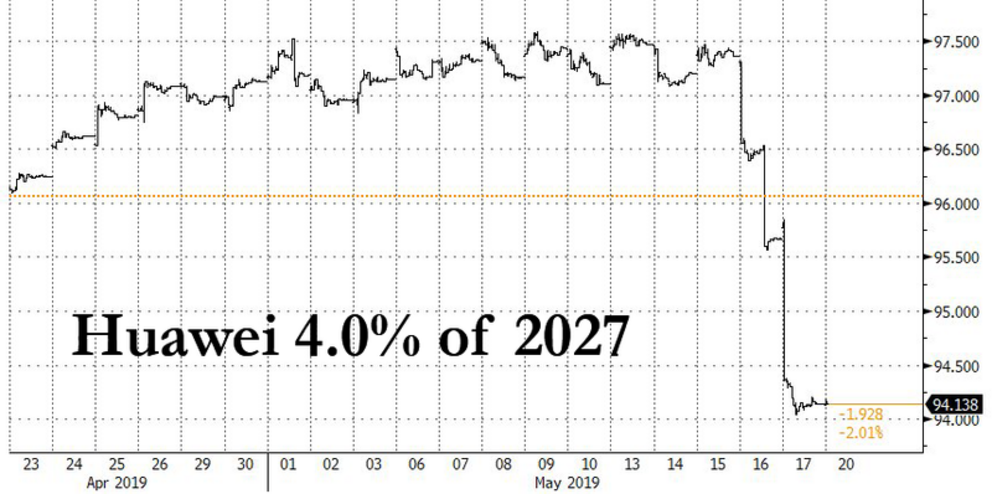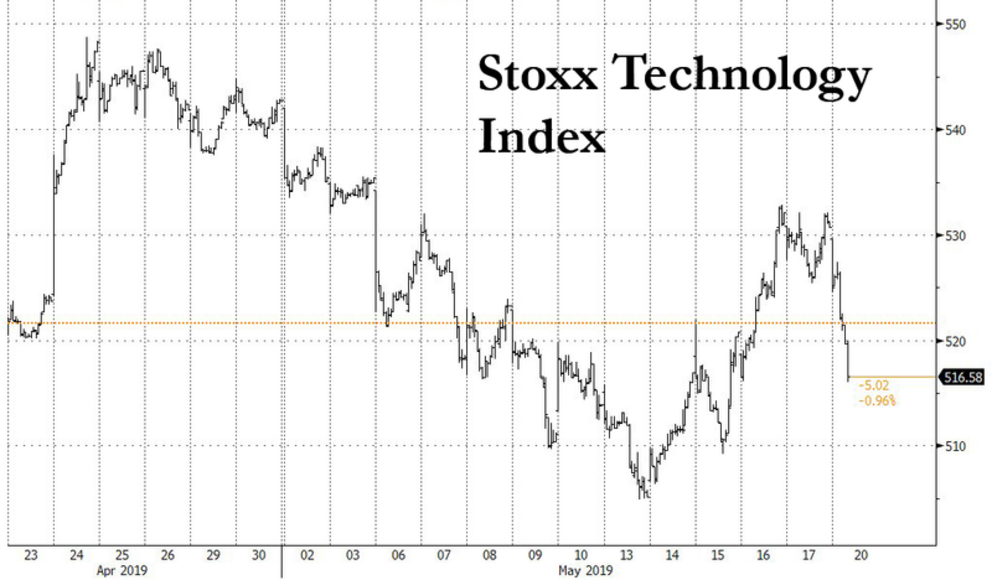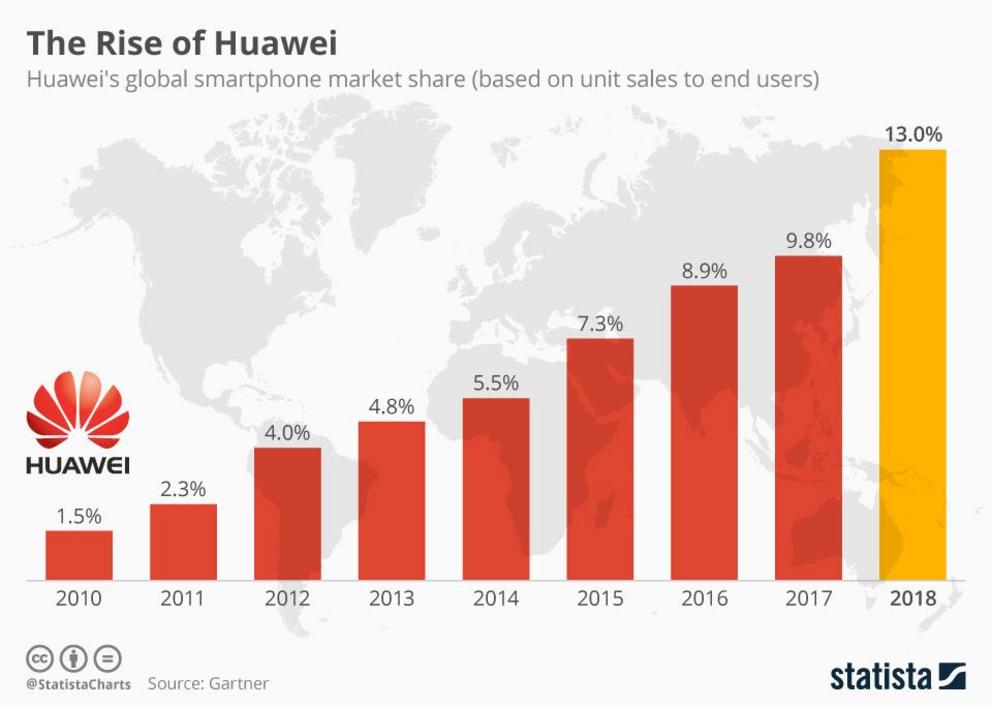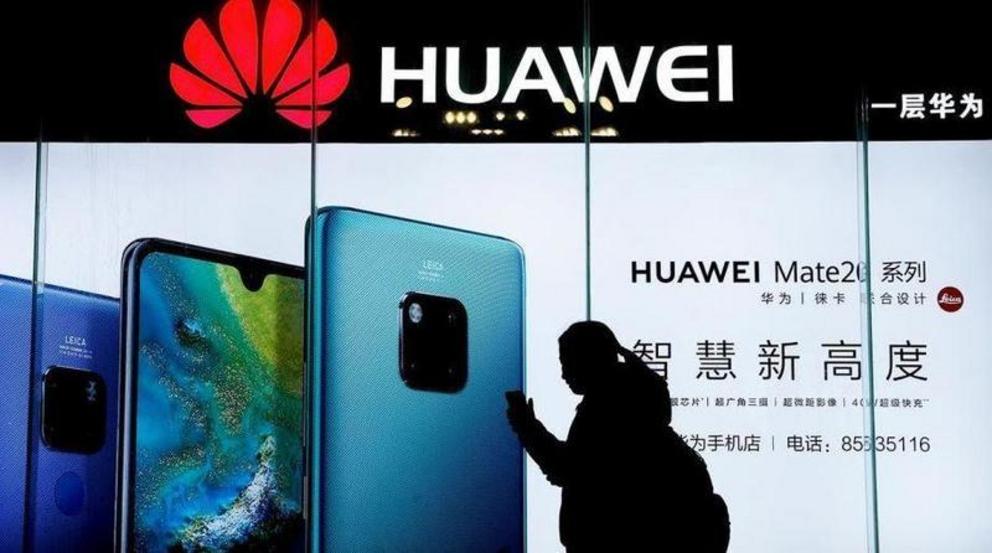Google, Intel & others cut ties with Huawei as trade war heats up
Update (10 am ET): After Google revoked its Android license, Huawei has released a statement to the Verge promising that users of its devices will still receive security updates and after-sales services...and that Huawei would begin working on a 'sustainable ecosystem' of its own.
The company also promised to build a 'sustainable ecosystem' of its own.
"Huawei has made substantial contributions to the development and growth of Android around the world. As one of Android’s key global partners, we have worked closely with their open-source platform to develop an ecosystem that has benefitted both users and the industry."
"Huawei will continue to provide security updates and after-sales services to all existing Huawei and Honor smartphone and tablet products, covering those that have been sold and that are still in stock globally."
"We will continue to build a safe and sustainable software ecosystem, in order to provide the best experience for all users globally."
Google has already said that owners of Huawei phones will retain access to Google Play and the Google Store, and that they will still be able to update their apps.
Huawei's share of the global smartphone market has been growing at a rapid clip, but losing access to most Android services could slow Huawei adoption outside of China, where Android is extremely popular.
You will find more infographics at Statista
* * *
The Commerce Department officially blacklisted Huawei and dozens of its affiliates Friday afternoon, and one business day later, we're starting to see some major Western companies severing their business ties with Huawei, a trend that could have seriously dire consequences for the Chinese telecoms giant.
Alphabet has announced that it will cut off Huawei Mobile's access to most of its Android operating system offerings, which could hurt sales of Huawei phones outside China. Intel, Qualcomm, Xilinx and Broadcom have all said they will stop selling chips to Huawei because of Trump's executive order, according to Bloomberg.
Huawei will only be able to access the public version of Google’s Android mobile operating system, the world’s most popular smartphone software. It won’t be able to offer proprietary apps and services from Maps and search to Gmail, said the person, who requested anonymity speaking about a private matter. That will severely curtail the sale of Huawei smartphones abroad, though it’s unclear when those apps - which are popular mainly outside of China - will become unavailable.
Huawei, the world’s largest smartphone brand after Samsung Electronics Co., was one of a select few global hardware partners to receive early access to the latest Android software and features from Google. Outside of China, those ties are critical for the search giant to spread its consumer apps and bolster its mobile ads business.
Washington announced last week that it would impose new prohibitions on Huawei, including a ban on US companies selling components or services to the telecoms giant. The seriousness of these actions is difficult to understate, as Rosenblatt Securities analyst Ryan Koontz explained. If Huawei is pushed to the brink of collapse, Beijing might label this 'an act of war'.
"The extreme scenario of Huawei’s telecom network unit failing would set China back many years and might even be viewed as an act of war by China," Koontz wrote. "Such a failure would have massive global telecom market implications."
But bringing a massive global Chinese firm to its knees is one way to demonstrate to Beijing, and the rest of the world, which ignored Washington's warnings about Huawei, the true reach of American economic power. And it's one way to put a timer on talks with Beijing, ensuring that the trade skirmish won't drag on until the height of campaign season.
American firms weren't the only ones to act. In Europe, German chipmaker Infineon Technologies said it would suspend deliveries to Huawei, at least until it has had a chance to determine the significance of Washington's executive order (though company sources later denied these reports and said shipments to Huawei would continue).
Since hostilities with the US began, Huawei has been stockpiling components. It now has enough of a buffer supply to keep its business running without interruption for at least three months. Nikkei reported late last week that Huawei had reportedly asked suppliers to help it build up enough stockpiles to last it a year, but it's unlikely that Huawei has accumulated enough buffer stock to last it anywhere near as long.
If Washington refuses to back down, this three-month window might become the next critical deadline for the trade talks.
If it wasn't clear before, we now know that President Trump wasn't kidding when he said late last year that Huawei could become 'a bargaining chip' in the trade skirmish. Whether the prosecution of Meng Wanzhou factors into it remains to be seen, but President Trump did tell Fox News over the weekend that he wouldn't allow China to surpass the US on his watch.
Huawei's odds of finding replacement suppliers are slim, as Koontz explained. Huawei "is heavily dependent on U.S. semiconductor products and would be seriously crippled without supply of key U.S. components."
It's clear where Beijing stands on this. We wouldn't be surprised to see a 'consumer movement' emerge in China where middle-class consumers ditch foreign phones and proudly proclaim their support for Huawei.
On Sunday afternoon, President Trump threatened Iran with military intervention via tweet. Yet, analysts blamed the growing pressure on Huawei for the risk-averse trading atmosphere.
US stocks were on track to open lower. Meanwhile, Huawei's dollar-denominated corporate bonds tumbled again on Monday after one of their biggest declines in recent memory on Friday. The selloff comes as fears of a Huawei bankruptcy are beginning to intensify.

Chip stocks and tech stocks more broadly sold off on the news:

Beijing has maintained its aggressive posture, with its Ministry of Foreign Affairs warning in response to news of the Google ban that China would do what it needed to do to protect its companies' "legitimate rights", and also hinted at legal actions it might take. Over the weekend, Beijing compared the trade skirmish with its actions in the Korean War, about as clear a sign as any that we're in for a protracted conflict.
Whatever happens, it looks like the showdown over Huawei has eclipsed the broader trade-war narrative. So much for the Huawei crackdown being a 'separate issue' from the trade talks, like Trump officials had previously insisted.
Bottom line: If we don't get a deal by the end of June, this trade war is going to really heat up.


